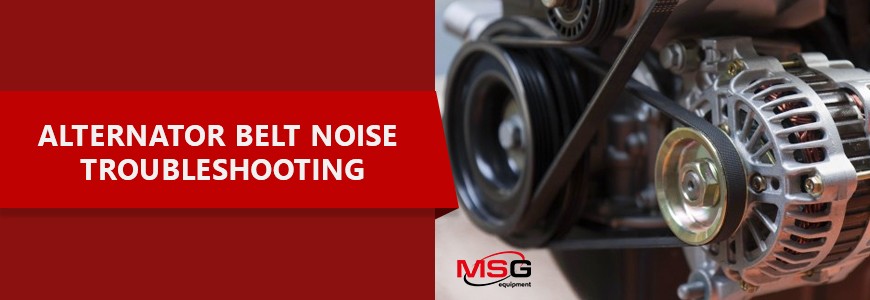
If you drive a car and suddenly hear the noise from the alternator belt, do not be frightened - this is not always a big deal. To understand why the alternator belt makes noise, read our article. First, let's consider what the belt is.
Types of alternator belts
To date, there are three types of belts which are installed on alternators: gear, V belt, poly-V belt. Each vehicle has its own belt type. The vehicle manual or Google will informs you which one is suitable for your car.
The task of the alternator belt is the rotation transmission (the torque) from the crankshaft to the alternator rotor due to which the latter generates electric power and transfers it to consumers to which the battery belongs as well. This belt is put on the pulleys of the crankshaft and the car alternator and, since it plays a very important role in the vehicle operation, it should always be fixed and properly tightened. Verify the correct operation of the generator will help We manufactured the test bench for testing starters and alternators for you to be always aware of the condition of the vehicle starter and alternator.
How to eliminate the alternator belt noise
Let’s consider the causes of annoying sound from the belt and the methods of elimination the noise.
Alternator belt noise on a cold engine
The noise of the alternator belt when starting a non-heated engine is often a consequence of the belt slippage. At the same time, the torque transmitted from the crankshaft is not enough to rotate the alternator pulley.
Reasons:
- Inappropriate lubrication of the alternator bearings (not the belt) is used. In the frosty season it is worth considering that the density of lubricants becomes higher that is why the alternator pulley is not able to rotate properly in conditions of cold start of the internal combustion engine until the motor warms up to the required temperature.
"What lubrication should I use for the alternator belt in winter?" Lubricate the bearings with a frost-resistant grease, except the belt. In case of burying, it can be treated with a special spray softening the rubber.
- The alternator belt is loose. Similar to the described above, when the motor is not heated, the belt with insufficient tension cannot gain sufficient acceleration on the pulley and it will be accompanied by a peculiar noise. It will occur when the length of the belt is incorrectly selected or stretched due to prolonged use.
The solution is the adjustment of the alternator belt tension which we will discuss in detail later.
How to check the alternator belt tension
When there is no service book at hand, the folk method of checking the alternator belt tension can be used. Take a piece of the belt between the alternator pulley and the crankshaft and twist around the axis. If the twisting angle is less than 90º, the alternator belt is stretched correctly.
What can cause the wrong belt tension
If the alternator belt is loose, it may lead to the battery discharge; if the belt is excessively tightened, the belt may tear and important components of the vehicle may break.
Important information! The noise of the alternator belt during cold start may also appear in case of the pulley jamming. You can check it yourself by twisting the alternator pulley. If it does not move due to the effort, it requires a complete repair or entire replacement in the car service center. Learn more about business on testing and repair of alternators and starters.
Noise of the belt under load
Noise from the alternator belt during operation can occur for several reasons:
- Contact of lubricant fluid with the pulley or the belt itself - remove remains of industrial oil.
- Wrong belt tension - adjust the tension.
- The failure of the alternator bearings - replace the worn bearing.
- Displacement of the alternator and crankshaft pulleys - align the pulleys along a single guide.
Now you know the reasons for the alternator noise and how to eliminate them.



COMMENTS